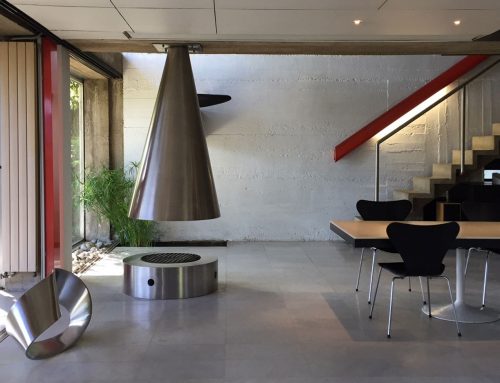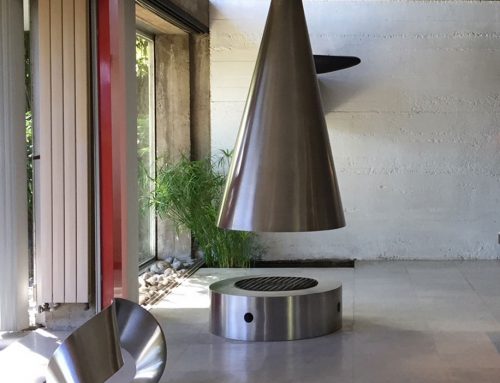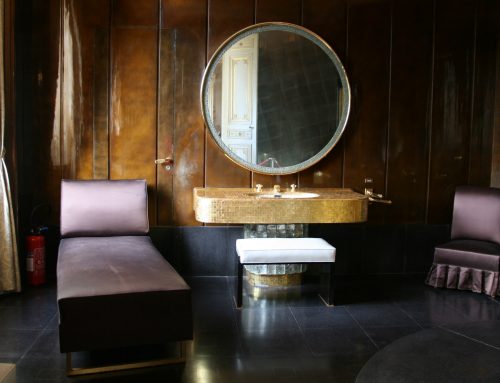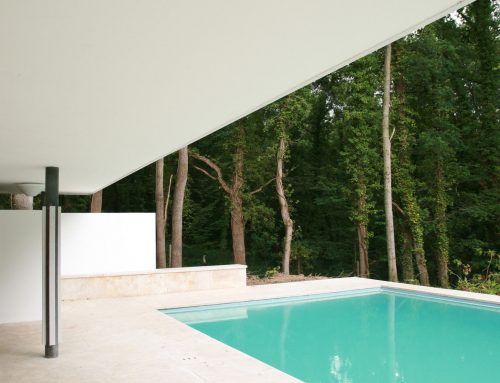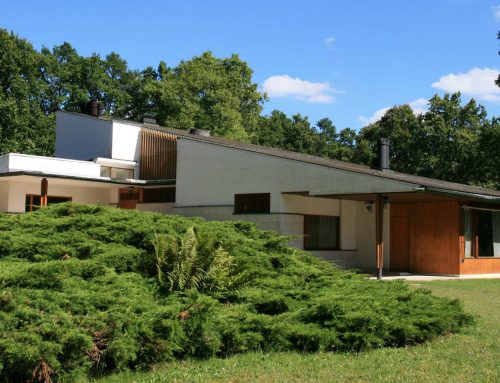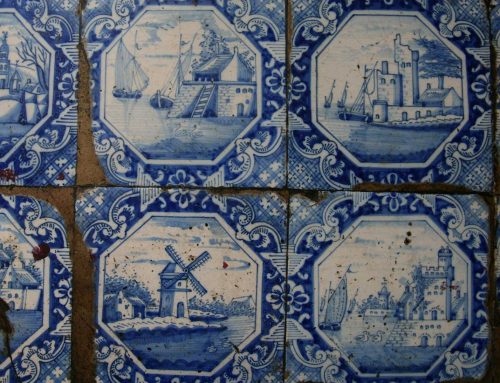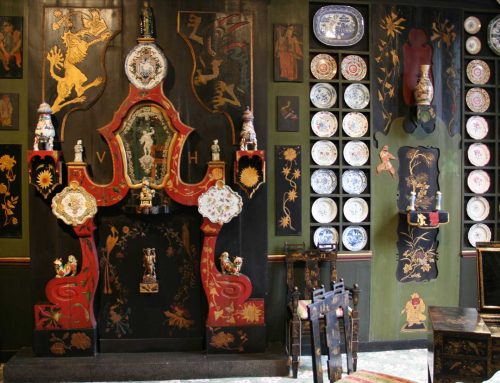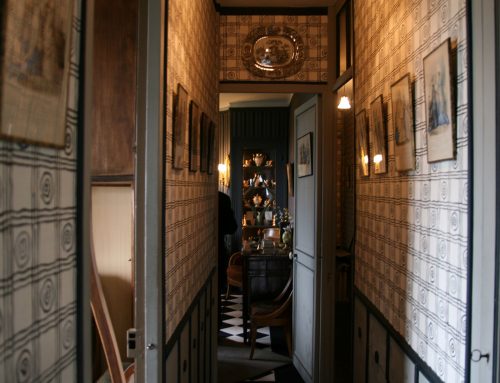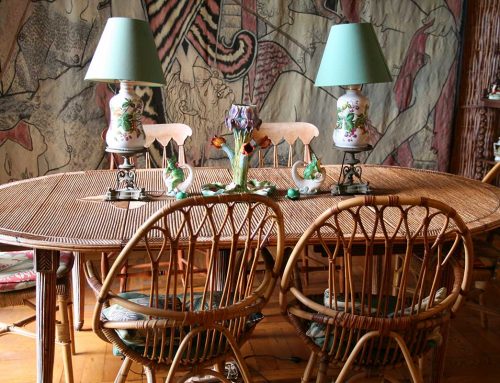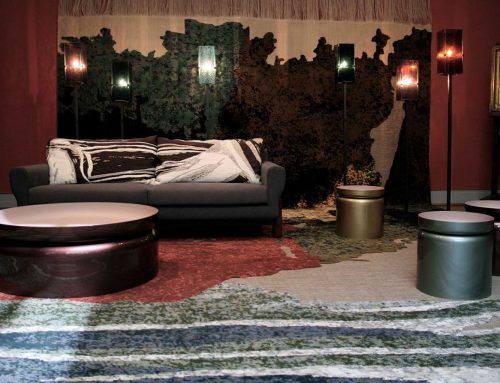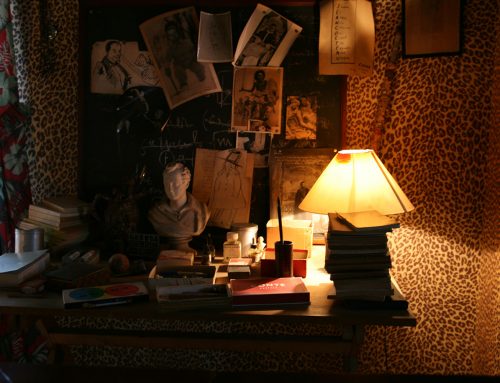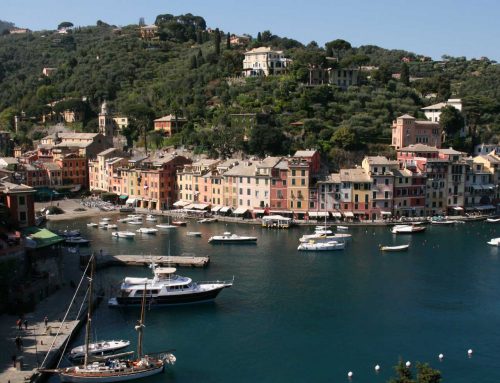Villa Ephrussi is perhaps the most emblematic of all the properties on Saint Jean Cap Ferrat. Created by Beatrice de Rothschild upon coming into her inheritance at the age of 41, it sits astride a plateau with sea views on all sides. Beatrice de Rothschild initially christened it Villa Ile de France, after the name of the luxurious liner and the memory of a cruise on board in 1890.
On the “port” side, the Villa looks out toward Beaulieu and the villa Kerylos, on the “starboard” side, to the harbour of Villefranche and the Cap de Nice.

View from the Villa Ephrussi towards Beaulieu and the Villa Kerylos.
The Villa was completed in 1911, its architecture inspired by that of Italian Renaissance villas. Although the Baroness Ephrussi de Rothschild is frequently associated with the colour pink, the villa was actually painted a yellow-ochre in her time.

The Baroness made the villa her winter residence, filling it with her eclectic collection of furniture, porcelain and paintings by the Great Masters. A train would arrive from Paris loaded with furniture and works of art and the Baroness would select the pieces she desired on the platform at Beaulieu.

 The patio, decorated with elements from churches and convents, which was used for receptions.
The patio, decorated with elements from churches and convents, which was used for receptions.

The Grand Salon, with its panelling from the Hôtel de Crillon in Paris, Louis XVI furniture, rugs from the Palace of Versailles and the Louvre and gaming tables – a tric-trac table and a whist table which had been owned by Marie-Antoinette.

The bathroom with its domed ceiling covered in caned trellis in gold slatted chestnut.

A light-filled stairway leads to the first floor, which is dedicated to Beatrice de Rothschilds collections – Meissen porcelain, chinoiserie…

The Monkey Room. The panels all come from private mansions in Paris and feature monkey musicians: a trumpeter, violinist, conductor, singer…

All the rooms feature elegantly shuttered windows, which frame the views.


From the loggia, Beatrice de Rothschild could survey her team of thirty gardeners, all wearing berets with a red pompom.

Originally designed by Harold Peto and Achille Duchêne, the grounds were later entrusted to Louis Marchand, who added to the formal French and Florentine gardens, creating Spanish, Provençal, Japanese and Mexican gardens.


The Mexican Garden

The Spanish Garden

View from the Florentine garden

The Temple of Love

The Provencal garden



